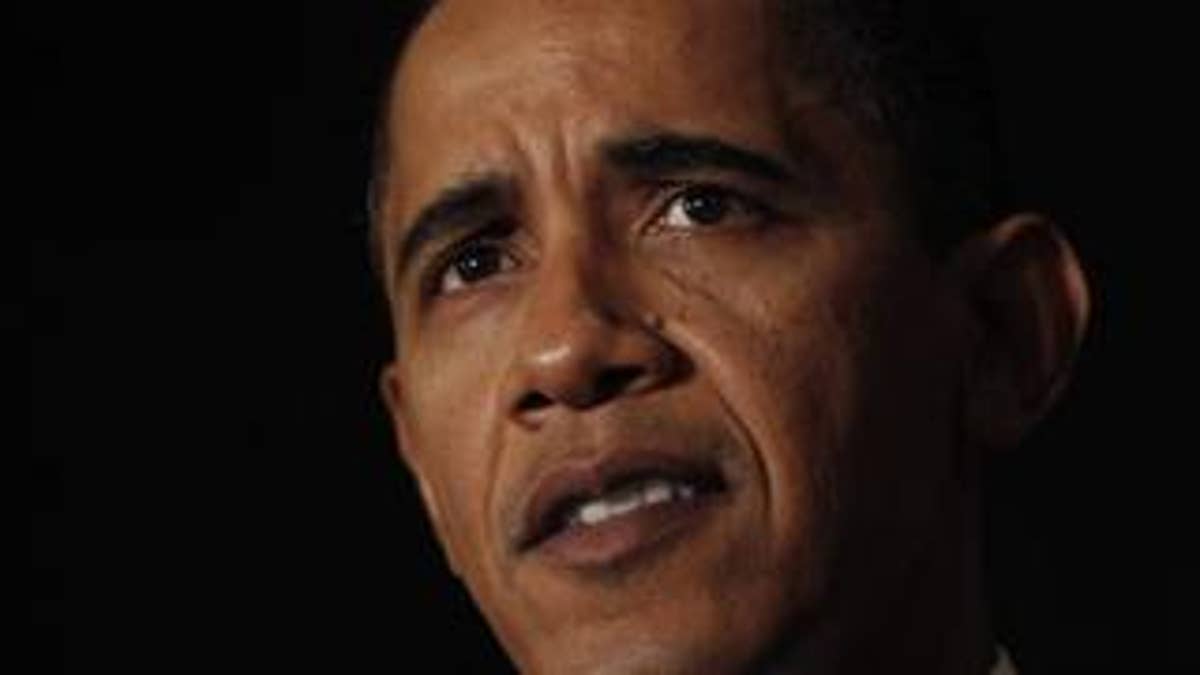
When it comes to making appearances at political fundraisers, President Obama apparently can't say no -- especially when compared to his two predecessors.
Just nine months into his presidency, Obama has appeared at 23 Democratic fundraisers, including the two he attended Tuesday night, according to Mark Knoller of CBS News, who keeps a detailed log of presidential activities.
By comparison, George W. Bush attended six political fundraisers and Bill Clinton went to five during their first year in office.
"That's a clear disparity," said Pete Sepp, vice president for policy and communications at the National Taxpayers Union.
But when it comes to raking in the cash for fellow party members, Bush appears to be the fundraiser-in-chief.
He raised $48 million in those six fundraisers, while Obama raised $21 million in his first 20.
Obama's whirlwind fundraising tour is far from finished. This week he's going to a rally for New Jersey Gov. Jon Corzine, who's locked in a tight race with Republican challenger Chris Christie; he'll visit Boston to raise money for Massachusetts Gov. Deval Patrick, who is up for re-election in 2010; and he'll be at a fundraiser for Connecticut Sen. Chris Dodd, who is facing a tough re-election next year.
Next week, leading up to the Nov. 3 election, Obama will campaign for R. Creigh Deeds, who trails Republican Bob McDonnell in the race for Virginia governor.
There's plenty at stake for Obama, who is the Democrats' top fundraiser. Dollars aren't materializing as much as expected for Democrats. And, two weeks before off-year elections, Democrats are facing the prospect of losing the hard-fought gubernatorial race in Virginia and perhaps even in New Jersey. They are contests that depend on the Democratic base and to a certain degree are shaping up as a test of Obama's political strength.
It's not just this year's races that are at issue but also the broader state of the Democratic Party -- from cash-flow to enthusiasm -- heading into next year. In the 2010 elections, Democrats will try to defend their majorities in Congress and seek to pick up governor's seats in many states.
The party that controls the White House typically loses congressional seats in a president's first midterm election. Obama wants to avoid the fate of Clinton, who like the current president swept into office with youthful energy, only to see his party lose control of Congress two years later.
Obama is calculating that he can't afford criticism from the Democratic Party's base supporters that he's not helping candidates. But there also are risks to full-throttle campaigning.
"If governors and members of the House and Senate come to the conclusion that Obama's personal support is not transferrable or that his supporters have not remained mobilized, the impact of his personal charisma will be seen as more limited than it was a year ago," said Kenneth Sherrill, a political science professor at Hunter College in New York.
"All in all, he gets more credit for making a public effort than for sitting on the sidelines and watching Democrats at risk fend for themselves," Sherrill said.
The circumstances were quite different for Obama's predecessors.
In 2001, Bush went to six fundraisers during his first few months in office -- including ones for former Arkansas Sen. Tim Hutchinson, who became the only incumbent to lose his re-election bid in 2002; Alabama Sen. Jeff Sessions and former New Mexico Sen. Pete Domenici, who decided not to seek re-election last year due to health reasons.
After the Sept. 11 terrorist attacks, Bush did not attend any political fundraisers for the rest of the year.
In the two gubernatorial elections that year, Democrat Jim McGreevy won in New Jersey and Democrat Mark Warner won in Virginia. In 2002, Democrats bolstered their overall number of governorships in 36 races.
In 1993, Clinton went to five fundraisers during his first year, including ones for New York Mayor David Dinkins, who would be defeated by Rudy Giuliani that year, and California Sen. Dianne Feinstein, who was re-elected the year after. Republicans reclaimed power in the gubernatorial races that year in New Jersey and Virginia. In 1994, Republicans swept to power in Congress, winning 54 seats in the House and eight in the Senate races. They also won the majority of the 36 gubernatorial races in 1994.
Due to political maneuvering, it's not clear how much of the bill taxpayers have to foot for these political fundraisers headlined by presidents.
Presidents tend to squeeze in business between political appearances to give their trips an air of official legitimacy and permit the White House to write off part of the trip under rules governing travel.
White House travel rules, developed under the Reagan administration, require the Air Force to pay all costs for the use of aircraft, but the government must be reimbursed for airfare, food, lodging and other expenses incurred during whatever portion of the trip is political.
Reimbursement for political activities is based on a tricky formula, however, and actual reimbursements usually come nowhere close to compensating the government for the cost of such trips. For example, Secret Service costs are always footed by the government.
A 2006 report for the House Committee on Oversight and Government Reform found that during 2002, political campaigns reimbursed the federal government for $198,000 of the $6.5 million flight expenses racked up by campaign-related stops made by Bush and Vice President Cheney -- 3 percent of the total cost. Taxpayer paid the remaining $6.3 million.
The Associated Press contributed to this report.




